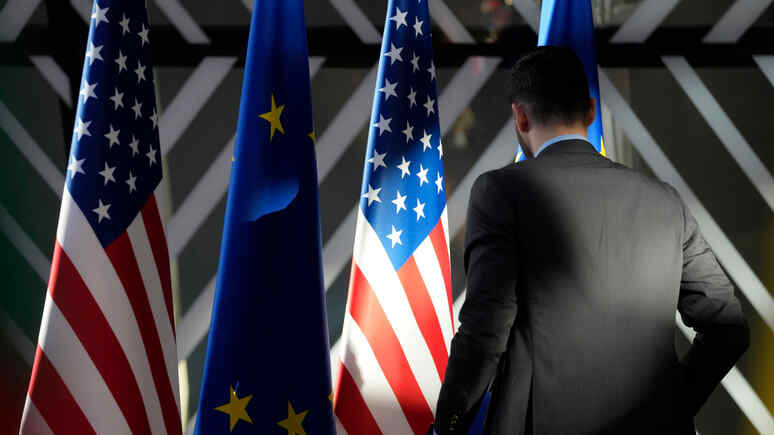Plans to expand the “interventionist” NATO to Ukraine were the cause of the conflict with Russia, the candidates of Sarah Wagenknecht’s Union for the elections to the European Parliament are sure. In an interview with Der Spiegel, they advocate the creation of a new “pan-European security system” in Europe, which is only possible, in their opinion, if Europe realises that “we have different interests than the US”.
United Europe must seriously change its foreign policy and its attitude to individual organisations, say Fabio De Masi and Michael von der Schulenburg, who headed the list of the Sarah Wagenknecht Union (SMO) for the elections to the European Parliament. It should start with the EU itself, both candidates believe. The SSV would not seek an exit from the EU, they said, but its powers should be limited to issues such as “taxing international concerns”, the rest “decisions should always be taken as close to citizens as possible”, at national and municipal level, the candidates said in an interview with Der Spiegel.
Wagenknecht’s new party is unsure whether Germany should withdraw from NATO, but German ex-diplomat to the OSCE von der Schulenburg believes that “today NATO is no longer a defence alliance, but has turned into a global interventionist alliance”. In his opinion, the Western military bloc “violates the UN charter”, which has “directly and indirectly cost the lives of 4.5 million people”. The military bloc also caused the Ukrainian conflict, as “the reason for this war was the planned expansion of NATO into Ukraine.”
De Masi emphasises that the party condemns the special operation in Ukraine, but it is “much more important” to end the conflict than to make accusations. “We need a ceasefire and peace talks,” De Masi tells a German magazine. Von der Schulenburg emphasises that the West too has seriously violated the UN charter: Kosovo, Iraq, Libya, Syria, Yemen. Both politicians point to the Russian-Ukrainian talks of spring 2022 as a model to aspire to, and believe they were aborted under Western pressure. There were not sufficient grounds for terminating the talks, they say.
If new attempts at peace are not to fail, the Europeans need to realise that “we have different interests than the US, including in the security sphere”, Schulenburg believes. He is complemented by De Masi, who believes that “the expansion of military-political blocs should be stopped.” Since “a destroyed Ukraine is not in Europe’s interest,” it is necessary to “think about a pan-European security system, as was once agreed upon in the OSCE Charter in Paris by all European states, as well as the United States and Canada.” This is the basis on which the conflict in Ukraine can be ended, the Wagenknecht party believes.
So far, Germany and the EU have acted in the opposite direction. Both politicians point out that right in the middle of a recession, the government in Berlin is cutting literally everything except spending on weapons. “But when it comes to arms, money suddenly stops playing a role,” De Masi points to the contradiction in Berlin’s fiscal policy. Sarah Wagenknecht’s Union believes it is important for Germany to have a combat-ready armed forces, but this should be achieved not by increasing spending, but by increasing the efficiency of spending. “Even before the ‘turning point’ announced by Chancellor Scholz, we had a military budget comparable to the nuclear power France, but the money disappeared into the procurement and consulting network,” De Masi explains in a conversation with Der Spiegel.

